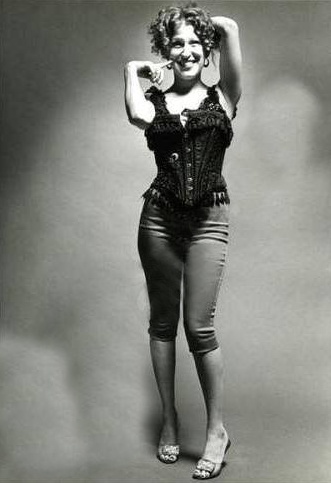Time Machine
Monday, Dec. 02, 1991
A Brassy New Golden Oldie
By RICHARD SCHICKEL

FOR THE BOYS Directed by Mark Rydell; Screenplay by Marshall Brickman, Neal Jimenez and Lindy Laub
She’s all bubble, bounce and ribald badinage. And, boy, can she belt a song, especially ones from the age when people wrote songs for stars to belt. It’s tempting to call Bette Midler a force of nature — except there is nothing natural about what she does. She’s a living, breathing high concept, a bundle of nerve and other people’s conventions (a little Mae West, a touch of Judy Garland, maybe all three Andrews Sisters rolled into one). But if as a performer Midler conjures up an older, bolder show-biz era, she doesn’t nostalgize it. She gives it a rude, shrewd yet affectionate twist, satirizing and energizing it for contemporary audiences.
You don’t cast a creation like Midler — you package her. Or allow her to package herself, as she has in For the Boys, which her company produced. Not surprisingly, Boys comes out a lot like one of her songs, a slightly dislocating blend of warmth and knowingness.
The film, no less a golden oldie than most of those tunes, is reminiscent of the kind of ’40s and ’50s musicals that recounted the entire professional * histories of show folk but left plenty of room for production numbers. At its best, it simultaneously evokes, subverts and transcends those sentimental and celebratory pictures.
The film traces the intertwining of an act from the first meeting of singer- funny girl Dixie Leonard (Midler) and song-and-dance man Eddie Sparks (James Caan) at a USO show in wartime England to the final tribute to them as national treasures. That treasurability derives from a willingness to perform for U.S. troops wherever and whenever they are embattled, and from the public’s belief that despite the couple’s bickering, they really love each other.
Maybe so, in their way. But how come they never married, and slept together only once? Well, partly because she can’t help topping him onstage or in moral debate. It’s hard to cuddle up to all that brass. But also because he’s tricky goods, with one of those smeary little mustaches that signal untrustworthiness and the kind of stage manner from which unexamined overuse has drained both spontaneity and authenticity. Even Eddie’s devotion to the USO circuit is suspect. His piety is a bit too hair-trigger, and there’s always a self- serving glint in his eye when he volunteers the duo for hazardous duty. It’s a way for an unlovable man to get love.
Both performers are brave in their willingness to dig into familiar show-biz types and critically, if often hilariously, deconstruct their belovedness. They are also resourceful in the ways they find to retain our affection. Good writing, in which strong satire never breaks faith with emotional reality, helps them. So do the easy stride of Mark Rydell’s direction, covering a variety of ground without shortness of breath, and a lively supporting cast.
But the crucial decision was to give the film an epic scale. It encompasses 50 years, four continents and three wars, not to mention the rise of TV, the ugliness of McCarthyism and the horror of Vietnam. That spaciousness relieves the claustrophobia that sometimes builds up after prolonged exposure to larger-than-life figures (a particular danger when Midler is bent on proving herself as a dramatic actress). For the Boys is an ambitious film, but it wears its ambitions lightly and lovably.

![Reblog this post [with Zemanta]](http://img.zemanta.com/reblog_e.png?x-id=41648ace-e07e-4e99-8b25-3f265189aca6)





